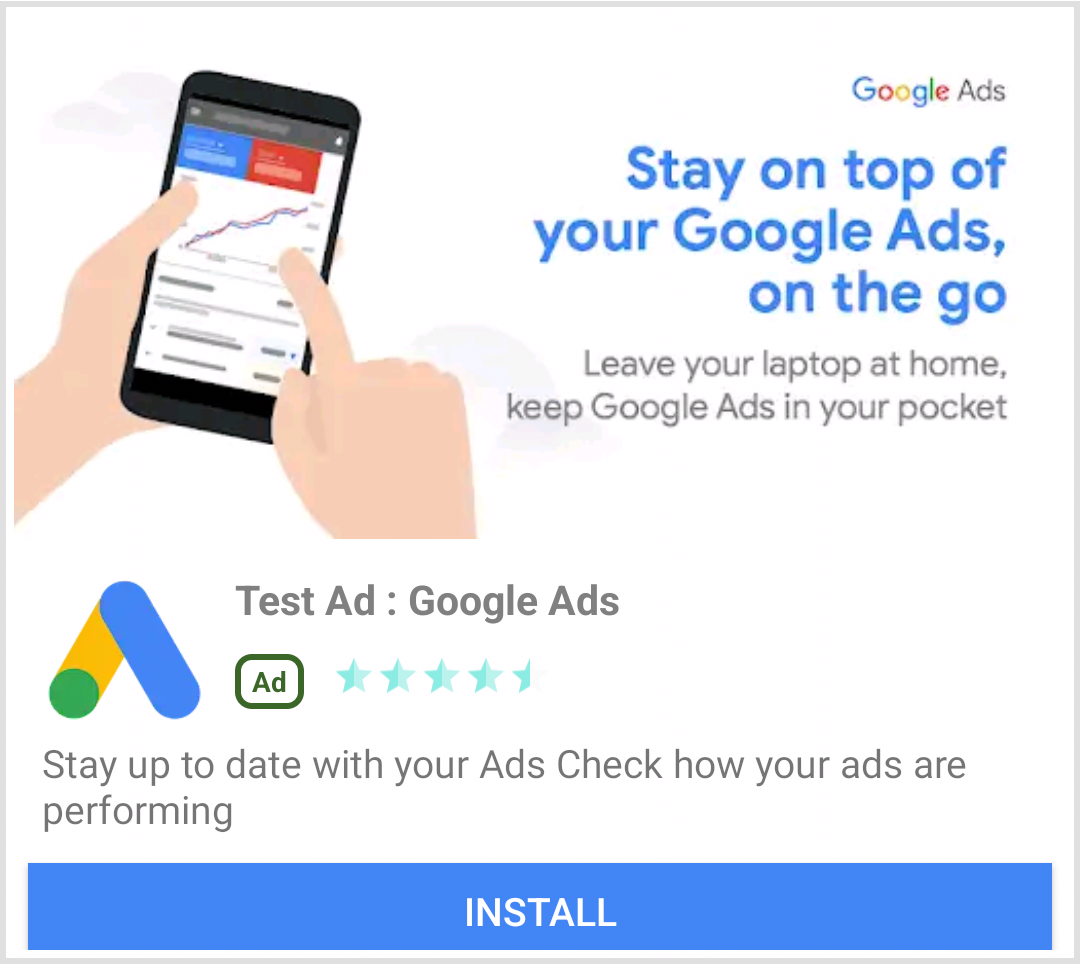Konfigurowanie reklam natywnych
Zadbaj o dobrą organizację dzięki kolekcji
Zapisuj i kategoryzuj treści zgodnie ze swoimi preferencjami.
Reklamy natywne to komponenty reklamowe wyświetlane użytkownikom za pomocą komponentów interfejsu platformy. W terminologii programistycznej oznacza to, że gdy wczytuje się reklama natywna, aplikacja otrzymuje obiekt NativeAd zawierający jej komponenty, a następnie to aplikacja, a nie Google Mobile Ads Flutter Plugin, odpowiada za ich wyświetlanie.
Ten format reklamy jest przeznaczony dla reklamodawców, którzy chcą mieć większą kontrolę nad wyglądem swoich reklam.
Jeśli nie potrzebujesz tych funkcji, użyj jednego z naszych innych formatów reklam.
Reklamy natywne w aplikacji Flutter możesz wyświetlać na 2 sposoby:
- Szablony natywne: wstępnie zdefiniowane szablony natywne, których styl jest określany za pomocą interfejsu Dart API.
- Konfiguracja platformy: niestandardowe układy zdefiniowane za pomocą narzędzi do tworzenia układów na Androida i iOS.
Szablony natywne
Do wyboru masz 2 rodzaje szablonów: mały i średni. Każdy szablon ma opcje stylizacji interfejsu, ale oferuje mniejsze możliwości dostosowania niż implementacja konfiguracji platformy.
| Mały |

Android
|

iOS
|
| Średni |

Android
|

iOS
|
Szczegółowe informacje o wdrażaniu szablonów natywnych w Dart znajdziesz w artykule Szablony natywne.
Konfiguracja platformy jest lepsza, gdy potrzebujesz pełnej kontroli nad wyglądem reklam na platformach Androida i iOS, ale musisz napisać kod dla obu tych platform.
Instrukcje konfiguracji na poszczególnych platformach znajdziesz w sekcji Konfiguracja na platformie.
O ile nie stwierdzono inaczej, treść tej strony jest objęta licencją Creative Commons – uznanie autorstwa 4.0, a fragmenty kodu są dostępne na licencji Apache 2.0. Szczegółowe informacje na ten temat zawierają zasady dotyczące witryny Google Developers. Java jest zastrzeżonym znakiem towarowym firmy Oracle i jej podmiotów stowarzyszonych.
Ostatnia aktualizacja: 2026-02-05 UTC.
[[["Łatwo zrozumieć","easyToUnderstand","thumb-up"],["Rozwiązało to mój problem","solvedMyProblem","thumb-up"],["Inne","otherUp","thumb-up"]],[["Brak potrzebnych mi informacji","missingTheInformationINeed","thumb-down"],["Zbyt skomplikowane / zbyt wiele czynności do wykonania","tooComplicatedTooManySteps","thumb-down"],["Nieaktualne treści","outOfDate","thumb-down"],["Problem z tłumaczeniem","translationIssue","thumb-down"],["Problem z przykładami/kodem","samplesCodeIssue","thumb-down"],["Inne","otherDown","thumb-down"]],["Ostatnia aktualizacja: 2026-02-05 UTC."],[],["Native ads allow apps to display ad assets using native UI components. Apps receive a `NativeAd` object and handle asset display. There are two implementation methods: native templates and platform setup. Native templates offer pre-defined small or medium designs with some styling options. Platform setup provides full control over ad appearance on Android and iOS but requires platform-specific code. Native templates are detailed in the linked section and so are the platform specific set up.\n"]]




